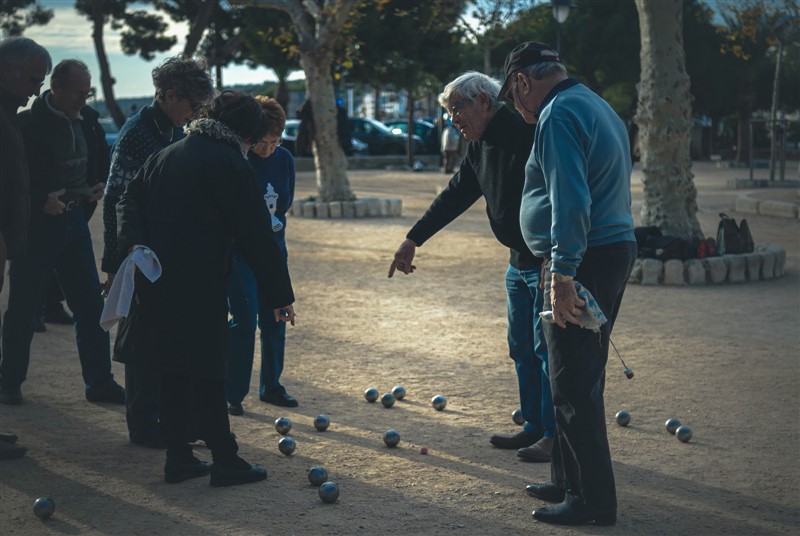-
Kevin
-
 December 16, 2020
December 16, 2020
-
 ...: What's The Difference?
...: What's The Difference?
Already vs All Ready?
Have you ever began to write already and wondered if you were using the correct English spelling? If you have ever been curious about using, all ready vs already correctly this article will have you covered and help you fix your common mistakes involving these easily confused words. Although they both sound the same and might seem like they would mean something pretty similar since they are homophones, they have their own meanings and can’t be used interchangeably.
What Is the Definition of the Word Already?
Already (one word) is an adverb meaning:
- by this or that time; previously; prior to or at some specified or implied time:
- When we came in, we found they had already arrived.
- now; so soon; so early:
- Is it noon already?
- Informal. (used as an intensifier to express exasperation or impatience):
- Let’s go already!

What Is the Difference Between Already and All Ready?
All ready and already can be hard to see or hear a difference in but there is a big difference in their use and definition. The two word phrase all ready means being prepared or fully ready for something. It is a phrasal adjective. Example – I am all ready and packed for our family vacation. Already is used to describe something that has been done or something that has come now or early. Example – I already am packed and ready to go on vacation. Even though already and all ready sound the same out loud, they are spelled and used differently — as you can see.
Synonyms of Already
- Previously
- coming or occurring before something else; prior:
- the previous owner.
- Informal. done, occurring, etc., before the proper time; premature:
- Aren’t you a little previous with that request?
- coming or occurring before something else; prior:
- Then
- at that time:
- Prices were lower then.
- immediately or soon afterward:
- The rain stopped and then started again.
- next in order of time:
- We ate, then we started home.
- at the same time:
- At first, the water seemed blue, then gray.
- being; being such; existing or being at the time indicated:
- the then prime minister.
- that time:
- We have not been back since then. Till then, farewell.
- at that time:
- Before
- in front; in advance; ahead:
- The king entered with macebearers walking before.
- in time preceding; previously:
- If we’d known before, we’d have let you know.
- earlier or sooner:
- Begin at noon, not before.
- in front; in advance; ahead:
- Earlier
- in or during the first part of a period of time, a course of action, a series of events, etc.:
- early in the year.
- in the early part of the morning:
- to get up early.
- before the usual or appointed time; ahead of time:
- The group of people came early and found their hosts still dressing.
- far back in time:
- The Greeks early learned to sail and navigate.
- in or during the first part of a period of time, a course of action, a series of events, etc.:
- Once
- at one time in the past; formerly:
- I was a farmer once; a once powerful nation.
- a single time:
- We ate there just once. We go to a movie once a week.
- even a single time; at any time; ever:
- If the facts once become known, it will be just too bad.
- by a single step, degree, or grade:
- a cousin once removed.
- at one time in the past; formerly:
- Formerly
- in time past; in an earlier period or age; previously:
- a custom formerly observed.
- Obsolete. in time just past; just now.
- in time past; in an earlier period or age; previously:
- Heretofore
- before this time; until now.
- Now
- at the present time or specified time:
Examples of the Word in Context
- And yes, someone has already called Spencer a “Small Fry,” har har.
- FREAKING OUT ABOUT AGE GAPS IN GAY RELATIONSHIPS IS HOMOPHOBIC|SAMANTHA ALLEN|JANUARY 9, 2015|DAILY BEAST
- Merabet had already been immobilized by a bullet to the groin.
- THE MUSLIM COP KILLED BY TERRORISTS|MICHAEL DALY|JANUARY 9, 2015|DAILY BEAST
- For his part, Bratton is disappointed but not surprised that the same narrative is already being mapped onto Fry and Spencer.
- FREAKING OUT ABOUT AGE GAPS IN GAY RELATIONSHIPS IS HOMOPHOBIC|SAMANTHA ALLEN|JANUARY 9, 2015|DAILY BEAST
- Cassandra, whose hair has already begun to fall out from her court-mandated chemotherapy, could face a similar outcome.
- SHOULD TEENS HAVE THE RIGHT TO DIE?|BRANDY ZADROZNY|JANUARY 8, 2015|DAILY BEAST
- French officials were already on edge after a series of apparently unconnected attacks, including the stabbing of police officers.
- U.S. SPIES SEE AL QAEDA FINGERPRINTS ON PARIS MASSACRE|SHANE HARRIS, NANCY A. YOUSSEF|JANUARY 8, 2015|DAILY BEAST
- As I have already said, we had made four oars, but our boat was so small that only two were necessary.
- THE CORAL ISLAND|R. M. BALLANTYNE
- However, we are already sufficiently acquainted with his sentiments in these respects.
- THE LIFE OF PHILIP MELANCHTHON|KARL FRIEDRICH LEDDERHOSE
- The exclusiveness of the New England theocracies, already relaxed in its application to other sects, was thenceforth at an end.
- A HISTORY OF AMERICAN CHRISTIANITY|LEONARD WOOLSEY BACON
- “I thought that we had already come to an agreement,” said Simpson, with some warmth.
- THE CAVE BY THE BEECH FORK|HENRY S. SPALDING
- I was already marked out for the life of a student, yet little that was in the books I read seemed to find its way into my mind.’
- CRITICAL MISCELLANIES (VOL. 3 OF 3)|JOHN MORLEY
Summary
Well, hopefully, you are now more than confident on how to write both already and all ready in a sentence. If you are in ESL trying to learn English and are struggling to learn about difficult grammar concepts like homophones and idioms, try out some additional practice worksheets that will make you a pro in no time!
Sources:
- https://www.dictionary.com/browse/previously
- http://www.gutenberg.org/files/20844/20844-h/20844-h.htm
- http://www.gutenberg.org/files/36042/36042-h/36042-h.htm
- http://www.gutenberg.org/files/20160/20160-h/20160-h.htm
- http://www.gutenberg.org/files/39734/39734-h/39734-h.htm
- http://www.gutenberg.org/files/646/646-h/646-h.htm
- http://www.thedailybeast.com/articles/2015/01/08/u-s-eyes-al-qaeda-in-paris-attack.html?source=dictionary
- http://www.thedailybeast.com/articles/2015/01/08/should-minors-have-the-right-to-die.html?source=dictionary
- http://www.thedailybeast.com/articles/2015/01/09/freaking-out-about-age-gaps-in-gay-relationships-is-homophobic.html?source=dictionary
- http://www.thedailybeast.com/articles/2015/01/09/the-muslim-cop-killed-by-terrorists.html?source=dictionary
- http://www.thedailybeast.com/articles/2015/01/09/freaking-out-about-age-gaps-in-gay-relationships-is-homophobic.html?source=dictionary
- https://thewordcounter.com/how-to-write-autobiography/
- https://thewordcounter.com/wellbeing-or-well-being/
- https://thewordcounter.com/began-vs-begun/




